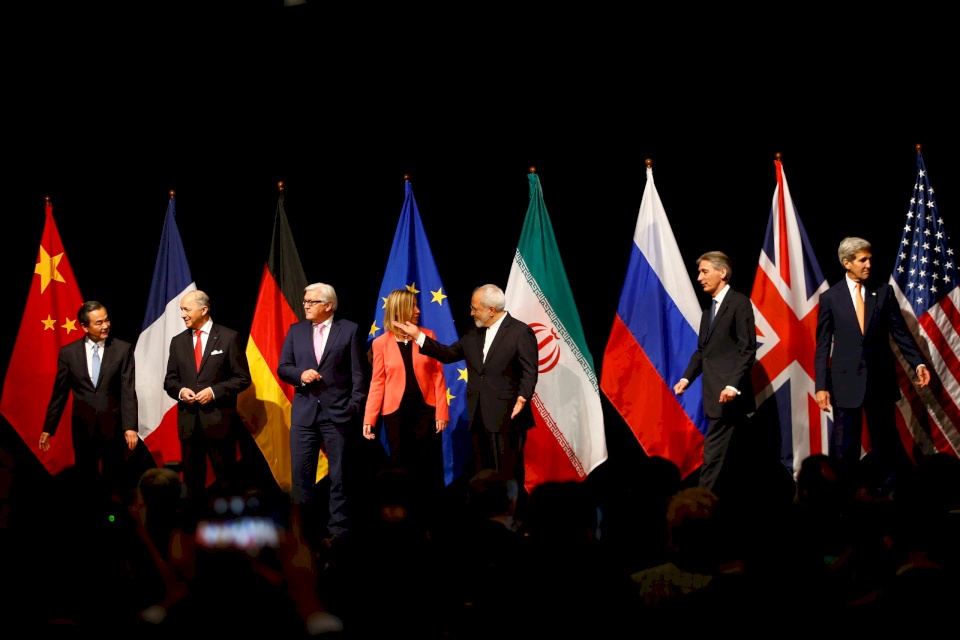
European countries offer to extend sanctions deadline on Iran under conditions
SadaNews - Western diplomats have stated that major European countries are willing to make an offer to extend the imminent deadline for reinstating international sanctions on Iran. This offer is conditional on Tehran agreeing to resume talks with Washington and fully cooperating with UN nuclear inspectors, according to the Financial Times.
Officials from the UK, France, and Germany are scheduled to meet their Iranian counterparts in Istanbul today, Friday. This meeting represents the first encounter between the Islamic Republic and Western powers since the recent war waged by Israel against Iran, in which the United States intervened to bomb nuclear facilities.
The three European countries that signed the 2015 nuclear deal – which collapsed after U.S. President Donald Trump’s unilateral withdrawal – must decide whether to activate the "snapback" mechanism. This mechanism aims to reinstate UN sanctions lifted under the deal.
For a long time, the trio of European countries has warned that they would resort to "snapback" if diplomatic efforts failed to curb Iran’s nuclear program, which Tehran has significantly expanded in response to Trump's withdrawal and U.S. sanctions.
In an attempt to ease tensions, the trio of European countries is expected to propose extending the UN sanctions deadline for several months, according to senior Western diplomats who spoke to the Financial Times. Without this extension, these countries will need to decide whether to activate the sanction re-imposition mechanism by mid-September, just one month before key provisions of the 2015 agreement expire on October 18.
Diplomats explained that this offer is conditional on Iran’s agreement to resume negotiations with the Trump administration and to cooperate with the International Atomic Energy Agency (IAEA). It could be extended for several months and would require a decision from the UN Security Council.
Some hardline Iranian lawmakers have warned that Tehran will withdraw from the Nuclear Non-Proliferation Treaty if UN sanctions are reinstated. Iran had already suspended its cooperation with the IAEA following Israel and the United States’ intervention in the war and the bombing of nuclear sites in Tehran.
However, Iranian Deputy Foreign Minister Kazem Gharib Abadi stated on Wednesday that a new technical team from the agency will arrive in Tehran in the coming weeks to negotiate a "new mechanism" for cooperation, emphasizing that this will not grant inspectors access to nuclear sites.
Iran also held talks with Russia and China, the two signatories of the 2015 agreement, in Tehran this week, although no details were disclosed.
Iran and the United States had indirect talks for two months starting in April, with a sixth round planned before Israel launched airstrikes that killed dozens of senior Iranian military commanders and nuclear scientists, a development that shook the Islamic regime and deepened distrust of the United States.
Iranian diplomats have expressed openness to resuming talks with the U.S. but insist on guarantees that neither Israel nor the U.S. will launch attacks while talks are ongoing.
Both the United States and Iran have largely sidelined the European powers during this year’s indirect talks. However, Trump stated that he is "in no rush" to resume negotiations, claiming that Iran’s nuclear facilities have already been destroyed, and that Tehran, not the U.S., is the one that needs to return to the negotiating table.
Nevertheless, the IAEA indicated that Iran may begin producing enriched uranium again "within months." Iran has not disclosed the location or status of over 400 kilograms of highly enriched uranium, a quantity sufficient to make several nuclear weapons, raising speculations that this material may have been transferred before the attacks.

How Did Trump and His Team Decide to Attack Iran?

Report: New intelligence information determined the timing of Khamenei's assassination and...

Prominent Iranian Leaders and Figures Killed Due to the American-Israeli Attack

Syria: 4 Killed in Sweida Due to Mutual Strikes Between Israel and Iran

International Calls to De-escalate and Warnings of Serious Consequences After Strikes on I...

Syria: 4 Killed in Suwayda Due to Iranian Missile Strike

Moscow: The Attack on Iran is Dangerous and May Lead to Catastrophe

